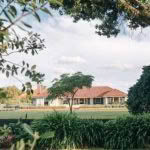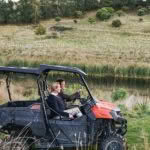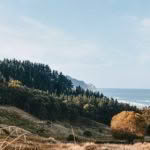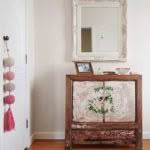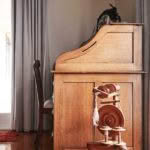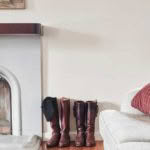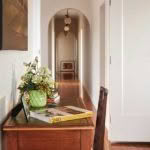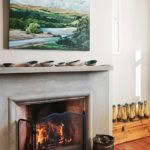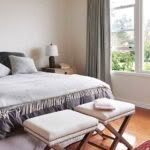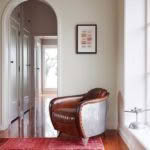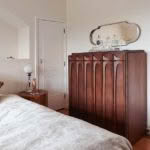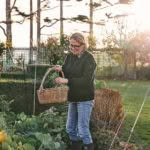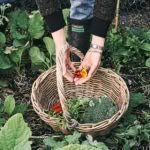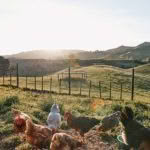Home away from home: Brigit and David Kirk find country connection at their rural Hawke’s Bay retreat
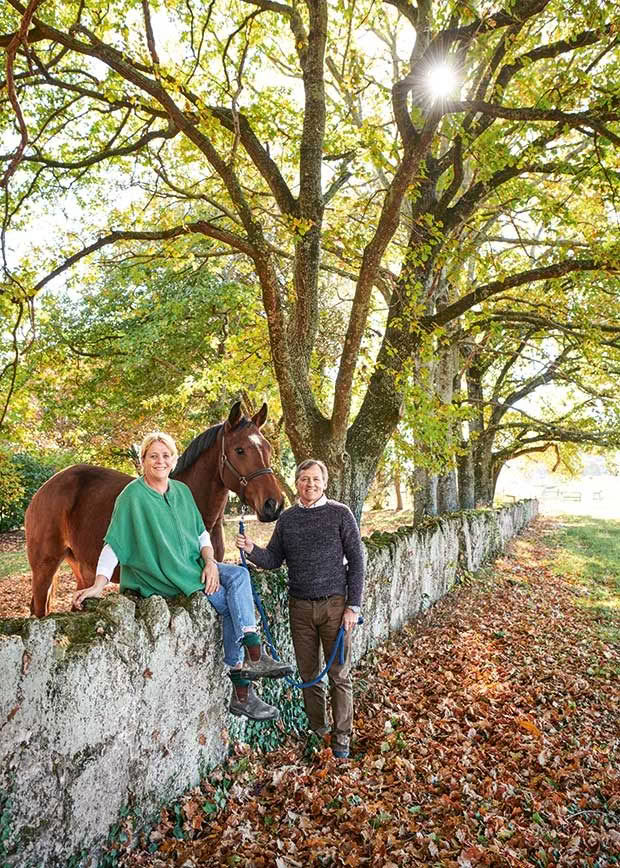
Brigit and David at Okawa Stud with four-year-old mare Fiesta NZPH.
Former All Blacks captain David Kirk and his wife Brigit live in Sydney, but have established a part-time New Zealand base not far from where their shared story began.
Words: Ann Warnock Photos: Florence Charvin
For Brigit Kirk, businesswoman, fundraiser, Cordon Bleu cook, Mustang-owner, mother of three sons and wife of All Black legend David Kirk, it’s a no-brainer: “I’d far rather watch the V8s at the Bathurst 1000 than the All Blacks.”
That’s not to say Brigit hasn’t loyally attended her fair share of test matches over the past three decades — it’s just that rugby is not her gig.
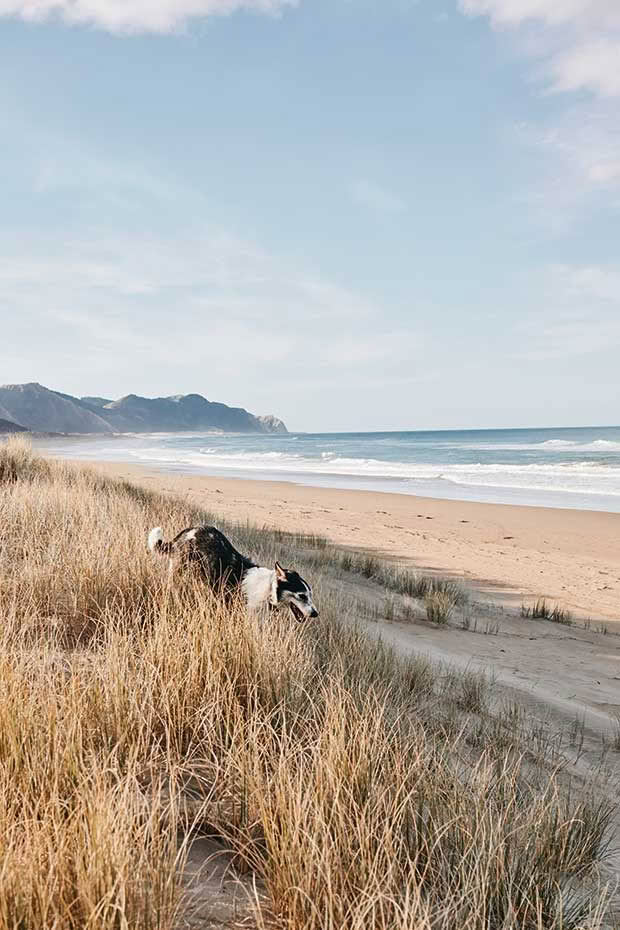
Brigit Kirk often borrows her sister Sarah Atchison’s dog Rua for long beach walks.
Nor was she fan-struck when she met then-All Black captain David Kirk at Pourerere Beach in Central Hawke’s Bay on New Year’s Eve 1986, seven months before the inaugural Rugby World Cup.
David, from Palmerston North, was staying at his family’s bach, while Brigit and her sister Tracey, whose parents farmed further up the road, were with family friends. “Our host said, ‘We’ve found two nice young men for you to meet, one is a keen sailor, and the other is the All Black David Kirk,’” says Brigit.
“We didn’t want to meet anyone, and I said, ‘I don’t think David Kirk is an All Black’, as I’d recently watched a test match on television with Dad and I’d never heard of him.”
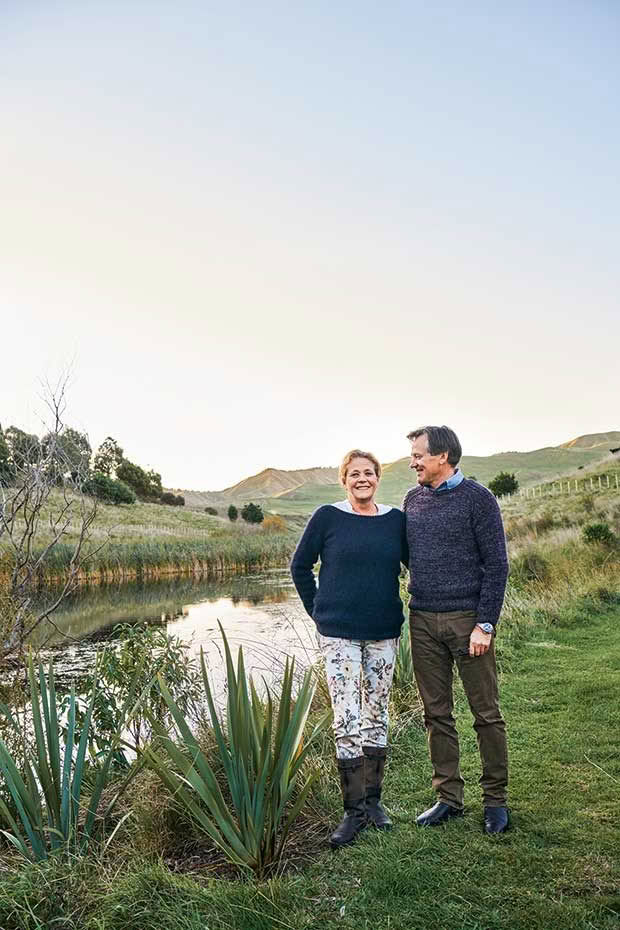
Inauspicious beginnings can lead to excellent outcomes. Thirty-two years later at their home-away-from-home in rural Hawke’s Bay, David says Brigit’s naturalness and lack of interest in the baubles of All Black eminence have been a grounding force in their lives. “At the time, it was also reassuring that she was prepared to take me on without any notion about famous All Blacks,” says David.
Brigit’s straightforward approach to the business of life was imprinted on her and her three sisters during their upbringing on a steep hill country farm at Pōrangahau where her parents Tom and Bessie Atchison established a perendale sheep stud.
- The homestead, designed by New Zealand architect Heathcote Helmore, was built in 1956.
- The Kirks plant about 1000 native trees and plants annually in the property’s four-hectare wetland.
- They’re already seeing increased birdlife. “Brigit is leading the project and I’m the enthusiastic follower. She has boundless energy,” says David.
“We had a privileged childhood — not in material terms — but because of the landscape and the people we grew up with. Seventy-five per cent of our community were Māori.
“At our school, if there were a tangi at the marae next door we older children would attend and pay our respects. We could hear the women wailing from our classroom. I thought all of New Zealand was like this and it was only later I realized how lucky we were to have been exposed to tikanga Māori. Those connections are a special part of my life,” she says.
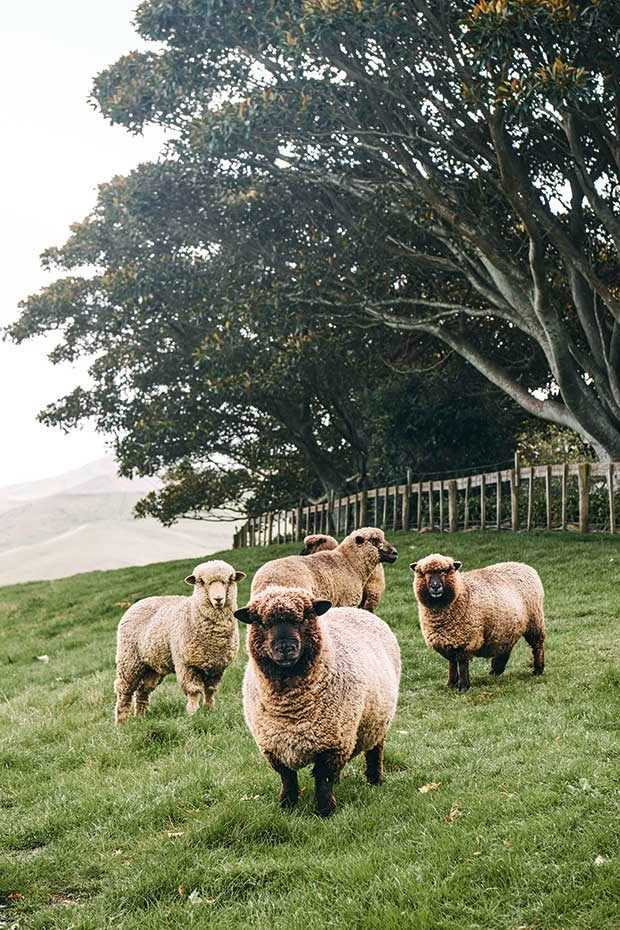
Brigit has a flock of 13 mixed corriedale and romney sheep and is learning to spin their wool.
Following boarding school in Havelock North, Brigit attended “the university of life” working at ski resorts, firstly at Whakapapa, then in the United States and Europe, and nannying in New York.
On her return to Aotearoa, she studied Le Cordon Bleu cookery in Auckland — tuition was rigid, and exam papers were sent to London for marking. At night, she cheffed at a restaurant. She embraced classical French cuisine and was unfazed by the execution of a 10-egg hollandaise or a complex chocolate mousse.
When David exited rugby after the 1987 World Cup win to study at Oxford University on a Rhodes Scholarship, Brigit headed full on into the world of food, working at the smart Oxford eatery, the Duke of Cambridge. Later in London, when David joined global management consultancy company, McKinsey and Co, she set up a catering operation specializing in board lunches.
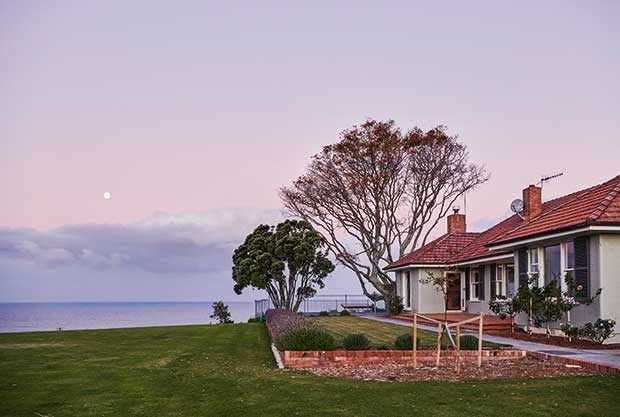
The homestead grounds have been simplified for easy maintenance — lawn has replaced garden beds and brick work has been refurbished.
The couple’s five years in England allowed them to pursue their lives away from autographs and expectations in New Zealand.
“It allowed us to start a new life together outside the orbit of rugby and to discover the world without being under a microscope,” says David.
Those discoveries included David learning to ride a horse at Great Windsor Park (Brigit having ridden since she could walk) and Brigit acquainting herself with the arts — David’s passion from his student days in Dunedin.
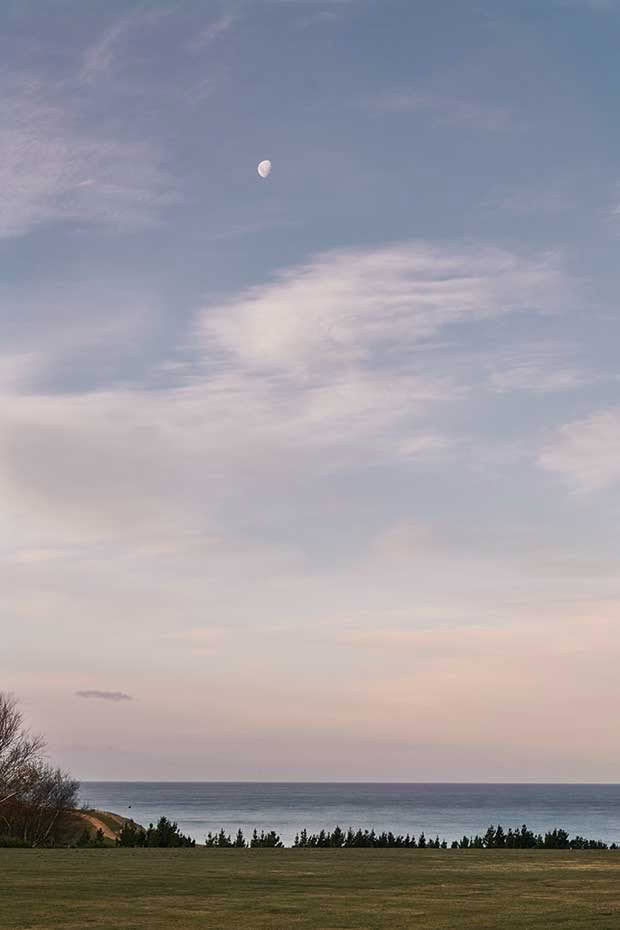
“We were lucky to live in Pimlico around the corner from the Tate and, in addition, I was taken under the wing of Lady Firth [wife of distinguished New Zealand-born ethnologist Sir Raymond Firth], who was so kind and introduced me to opera, first La Bohème, and then a whole season.
“The two of us would have wine and smoked-salmon sandwiches at half time, and after the show, she would take the tube back to Hampstead,” says Brigit.
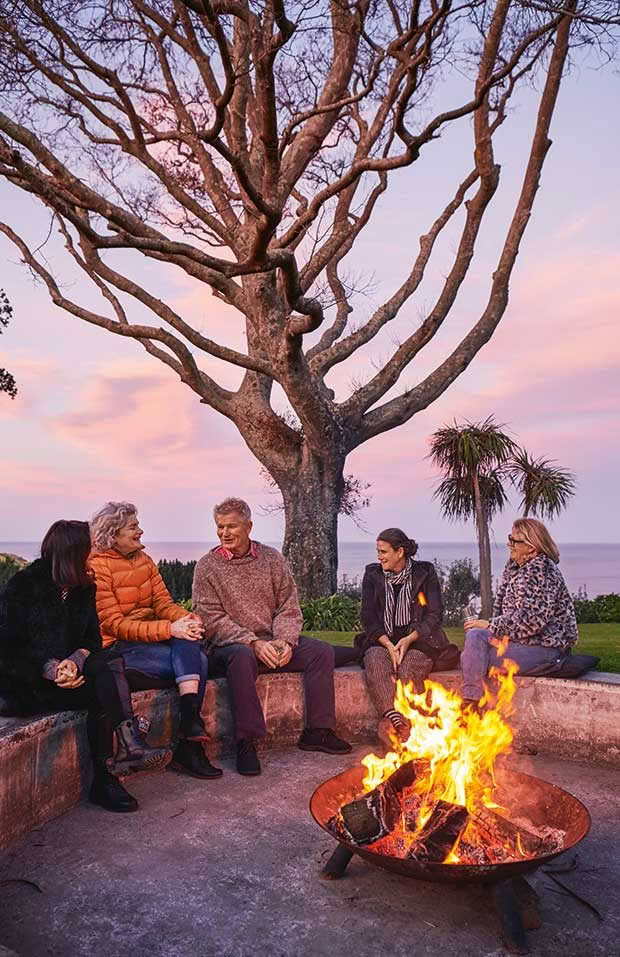
Friends around the fire pit (from left) neighbour Liz Lowe, Tracey Fullerton, Al Hutton, who manages the property in the Kirks’ absence, Brigit’s sister Sarah (known as Cooge), an artist who lives in nearby Waipawa, and Brigit.
Despite being on the other side of the world, David’s sporting and academic accomplishments didn’t fly under the radar. There were invitations — some glittering. “We were asked to a small dinner party with the Queen and Prince Philip at the New Zealand High Commission.
After the meal, David disappeared and I was informed the Queen had requested I sit next to her. I thought there had been a mistake. I ended up with the Queen on one side and Prince Philip on the arm of my chair while I wondered how to escape, for their sakes as much as mine.
“When David came back into the room I think he wondered what was going on,” says Brigit.
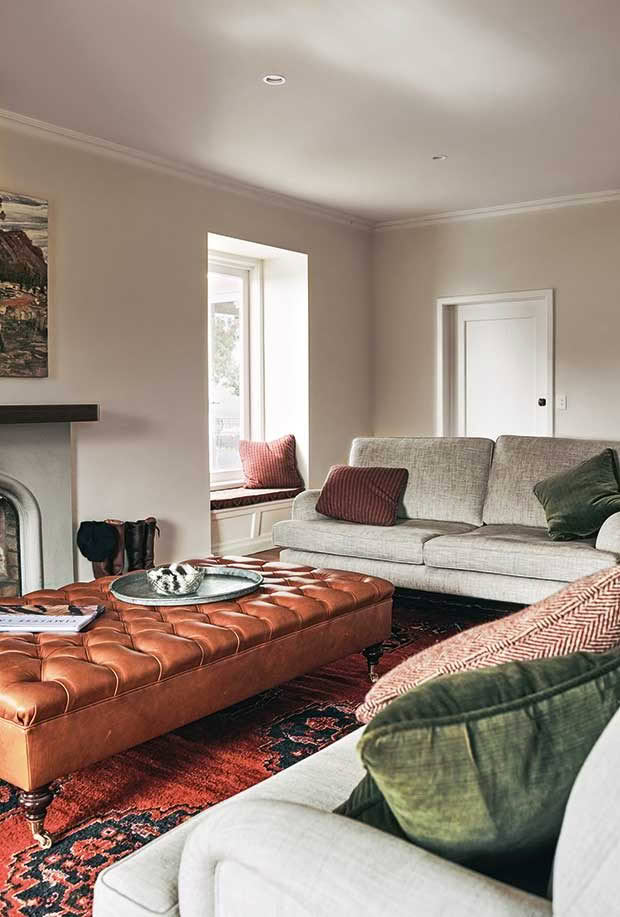
The leather ottoman (right) and sofas were purpose-built in Melbourne. Brigit sourced most of the furniture for the house from Australia with the help of her Sydney-based interior designer friend Andrea Killen, then shipped it over in a container.
In 1991 the Kirks, along with their 10-week-old son Hugo, returned to New Zealand where David had an unsuccessful tilt at the National Party nomination in the Tāmaki seat. “It was somewhat opportunistic, Robert Muldoon was retiring. I arrived back in New Zealand on the day the short-listing interviews happened and just made it in time,” he says.
His public policy studies at Oxford University equipped him with a belief that “good government policy is imperative and has two important tasks — to stimulate private-sector economic growth and to support social cohesion”.
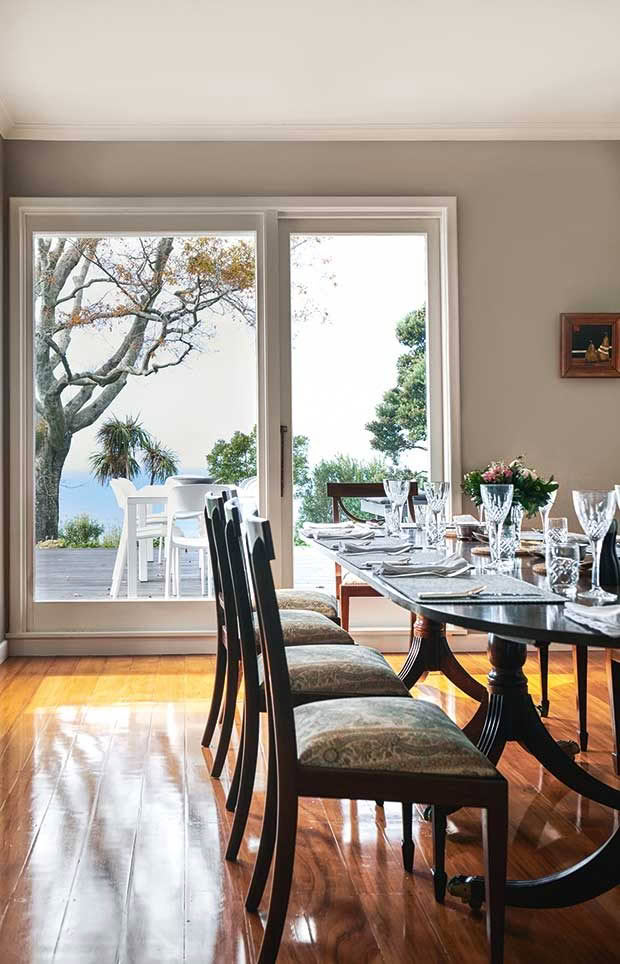
Following his loss, the would-be MP embarked on a role as chief policy advisor for then prime minister Jim Bolger. Brigit remains relieved politics didn’t happen.
“I can still recall standing on the stage at a school hall somewhere in Tāmaki in a maroon Laura Ashley suit thinking, ‘I’m wearing the wrong colour’ and ‘please can David not win’,” she says.
During the couple’s time in New Zealand, sons Barnaby and Harry were born before David’s role with the former conglomerate Fletcher Challenge triggered the family’s move to Sydney where they’ve lived for the past 18 years.
- The bedrooms have different themes, including “a more feminine room for Bessie when she stays, which has a pink chest.
- David and the boys gave Brigit the spinning wheel last Christmas, “hoping I would make them each homespun jerseys — which hasn’t yet happened”.
- David and Brigit’s riding boots alongside the fireplace.
- “I wanted the house to be a real home rather than a holiday house — it’s a mix and match of Ikea and Kmart with more expensive pieces,” she says.
- The painting above the fireplace of the Tuki Tuki Valley is by Graham Moeller and was a gift from David’s parents.
While David’s trajectory in the commercial landscape has centred on the printing and media industry, seven years ago he co-founded his own enterprise Bailador Technology Investments.
“We put money into high-growth Australia- and New Zealand-based information-technology companies — go on their boards and help them grow,” he says. Publicity listed four years ago, Bailador currently has an investment portfolio of $150 million.
The emergence of Bailador, combined with David’s heavyweight performance in the corporate sphere, have earned him the title “captain of industry”. But on an autumn morning at the 15-hectare Hawke’s Bay coastal property he and Brigit bought three years ago — where they are reviving a wetland, planting native trees, nurturing bees, bird life, chooks, a large vegetable garden and a flock of black sheep — being the captain of anything is the last thing on David Kirk’s mind.
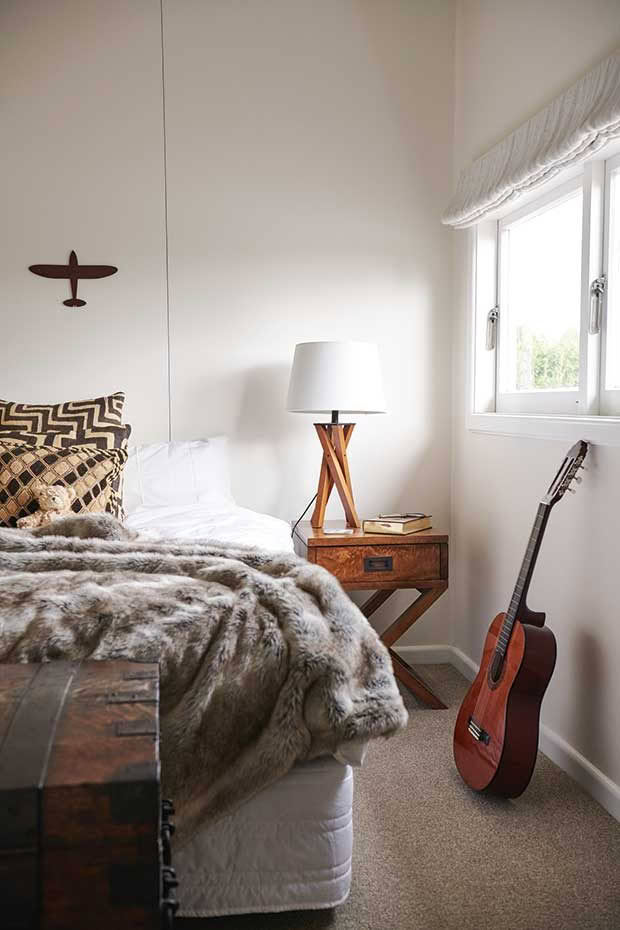
He is a world away from his 11th-floor offices on O’Connell Street in downtown Sydney and is hoping to establish an efficient work rhythm when in Hawke’s Bay. “The problem is I just want be to outside,” he says.
David and Brigit say building a base in New Zealand has been timely, with their sons tracking in different directions — Hugo (27) works in public policy in Washington, Barnaby (25) is studying law in Melbourne, and Harry (23) is a political campaign strategist in Sydney.
With its links to Pōrangahau and Pourerere Beach, Hawke’s Bay ticked all the boxes. And the region has been familiar to the couple since 1995 when they co-founded and invested in a sport horse-breeding operation at Haupouri Station, fueled by David’s interest in polo playing at the time.
Back then, the business broke new ground with its importation of frozen stallion semen from France, aided in part by David’s former role at the Beehive and his involvement in the establishment of testing protocols.
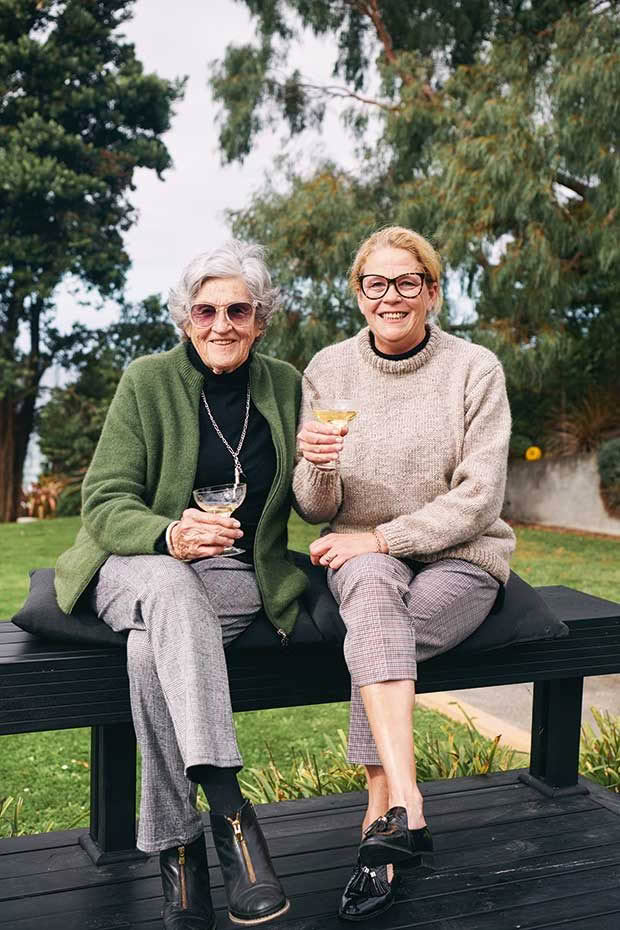
Brigit and her mother Bessie, who lives in Havelock North, at Bessie’s birthday lunch.
Earlier this year the sport horse-breeding business was reconfigured. The Kirks now own New Zealand Performance Horses (NZPH), and graze 55 horses and foals at picturesque Okawa Stud inland from Hastings.
Brigit oversees the business and its logistics whether she’s in Sydney or Hawke’s Bay. “We’re so lucky to have the most amazing team on site at Okawa Stud and we love our hands-on involvement and country life,” she says.
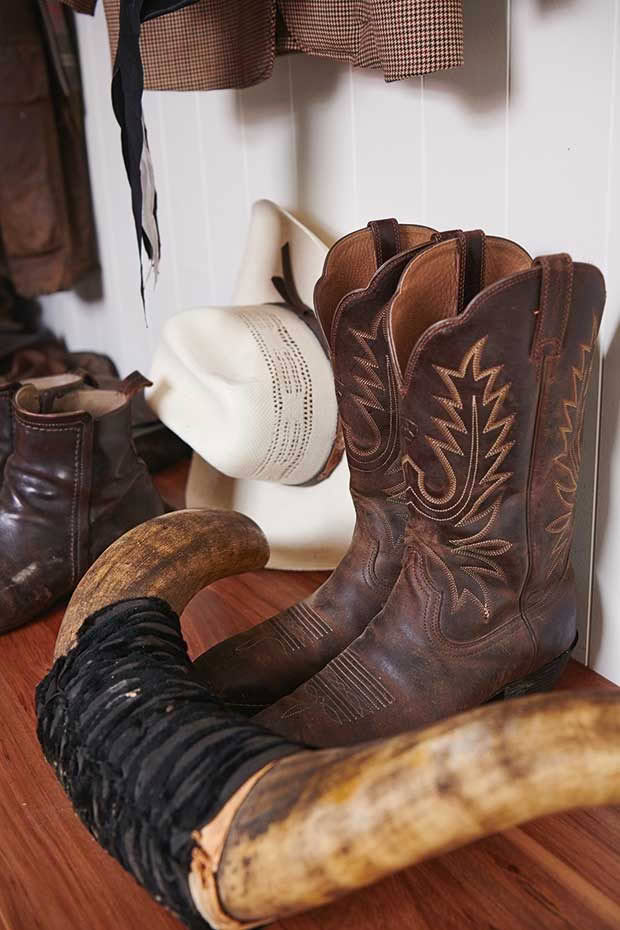
The Kirk boys also relish the country connection when they visit Hawke’s Bay and last Christmas their family holiday was a celebration Kiwi-style with a full house, tents on the front lawns, lamb on the spit and late-night rabbit shooting.
“The boys are trans-Tasman citizens. They think, talk and go to the pub as Aussies but they feel a strong connection to New Zealand and are proud of their knowledge of Māori culture. And they back the All Blacks,” says David.
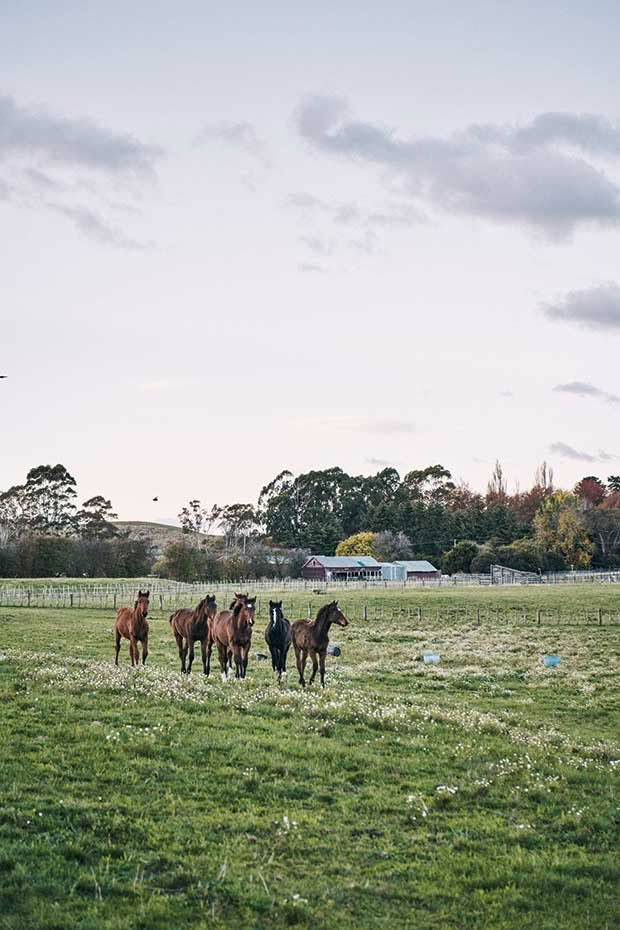
Horses have always been part of Brigit’s life, although these days she rarely rides. Her grandfather Tom Atchison established the New Zealand arm of Riding for the Disabled in 1962 and, when David and Brigit lived in London, she was an RDA volunteer at Kensington Barracks, near Hyde Park.
He says New Zealand, like Australia, is a “liberal democracy with freedom and a fair-go attitude”. But he sees the essence of the nation in tangata whenua, the merging of Māori and non-Māori and the bipartisan approach to addressing the past through the Treaty of Waitangi settlements. He believes increasing recognition and resolution of past grievances is propelling dynamic development within Māoridom.
Back across the ditch, there is different political discourse, and David’s Hawke’s Bay farm clothes are replaced with suits. He catches the early morning ferry from Hunters Hill into the city, and the couple’s life revolves around a calendar of business and social commitments, and charitable works.
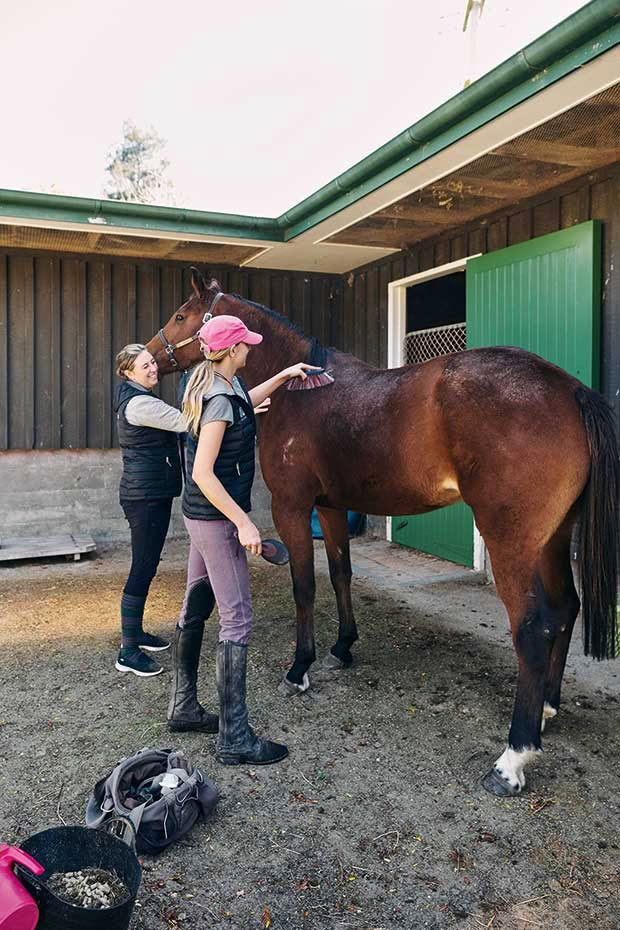
NZPH team members Amy Roydhouse and Georgia Burgin groom Fiesta NZPH.
There is also the presence of the arts in their lives. They’re keen theatre-goers and have a burgeoning collection of paintings. “I sometimes remind David that we don’t want our home to look like an art gallery,” says Brigit.
In recent years, Brigit and her cousin Rebecca Poynter have raised more than $250,000 for special-needs children on the annual NSW Variety Bash, a sponsored classic-car excursion.
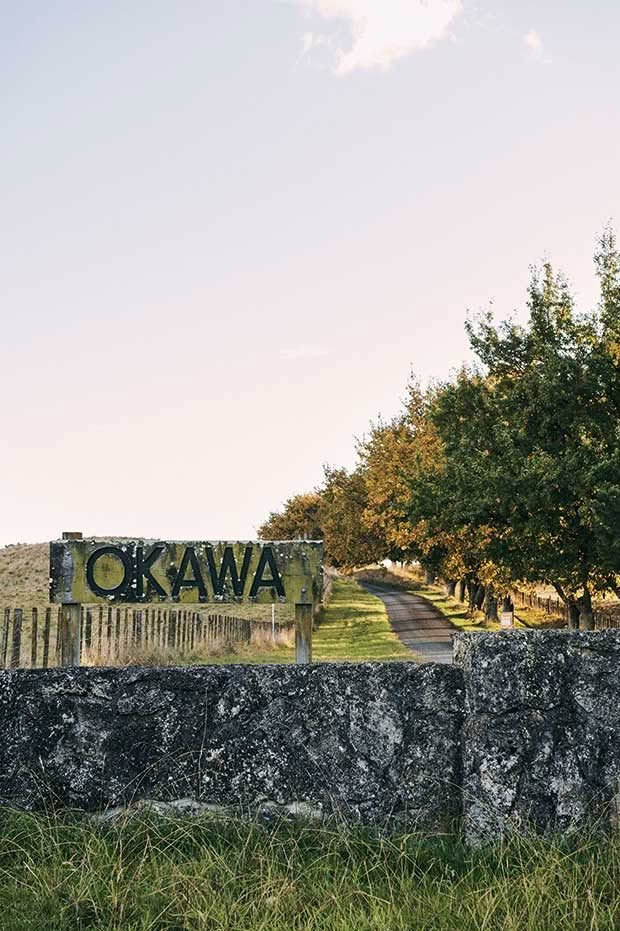
The horses at Okawa Stud are fed on a Waikato-crafted high-fibre equine feed and pasture, and on hay over the winter months.
Armed with “an arsenal of lipsticks”, they’ve driven Brigit’s red 1966 Mustang through the Outback and beyond. “It’s humbling to be able to help,” she says.
As to the question of finding inspiration in life? The couple says David’s parents, Murray and Diane, and Brigit’s mother, Bessie (all in their early eighties), and Brigit’s late father Tom, are a case in point. “It is not always easy to get older, but their determination to be active and engage with life is inspirational,” says David.
- The vegetable garden is a source of joy for the couple — with space only to grow “herbs and a few tomatoes” back in Sydney.
- Nothing is left to waste and Brigit converts surplus produce into many different types of preserves.
- “I’ll do anything to avoid the supermarket. It’s wonderful to cook seasonally and collect eggs without trips to town,” she says.
At the opposite end of the age spectrum, they’re inspired by young people — their three sons included — “with their open attitudes, ability to listen and their strong sense of giving to others”, says Brigit.
Away from the hurly-burly of Bailador, business, boardrooms, World Cup VIP boxes and sport horse breeding, David and Brigit don’t hanker for anything fancy. “Being here in Hawke’s Bay together, setting the table, and having a quiet dinner and just talking is something we love,” says David.
AT HOME WITH BRIGIT
“I love cooking main meals using offal and unusual, invariably cheap, cuts of meat that are often overlooked but tasty.”
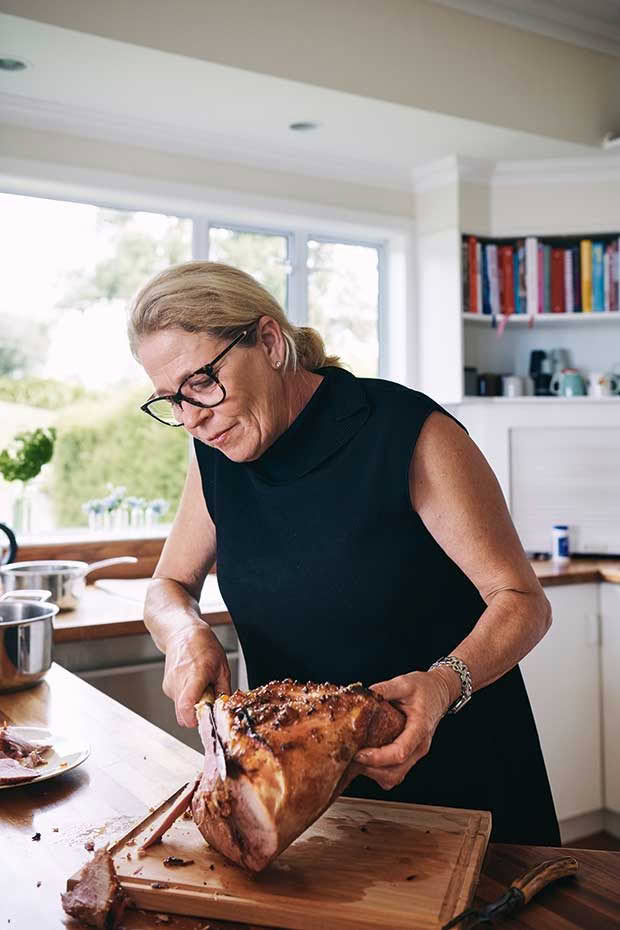
Brigit in catering mode, preparing ham with homemade tomato relish for her mother Bessie’s birthday lunch.
Brigit has handwritten a cookbook for each of her three boys with their favourite childhood recipes and recipes from friends who’ve been significant in their lives. “Our family rule is he or she who cooks doesn’t do the dishes.”
Best kitchen tip: “Prepare in advance, even the day before. Have a meal plan and a timeframe and try to stick to it. Know your limits; get help if you need it. No one wants to spend all night in the kitchen.”
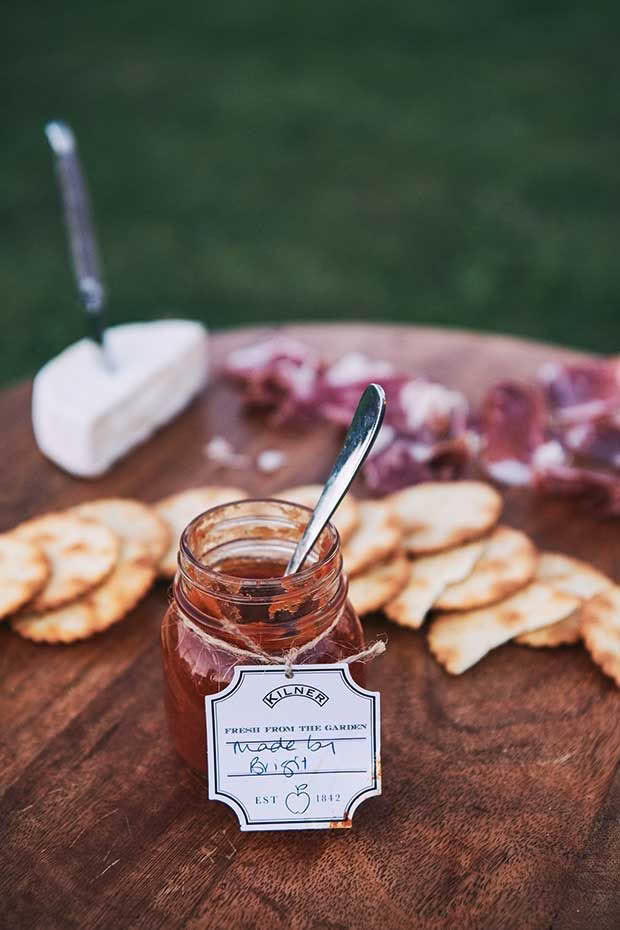
Best table-setting tip: I love crystal, silver and beautiful china and have sourced mine on Trade Me and by trawling second-hand and junk shops. Nothing needs to match. If you’re lucky, you can get crystal glasses for a couple of dollars each.”
On running two homes in two countries: “Having as much as possible on direct debit and using a checklist of what needs to be done before leaving is essential.”
DAVID KIRK COMPENDIUM
• Chair of ASX- and NZX-listed Kathmandu Holdings and Forsyth Barr.
• Co-founder and chair of Bailador Technology Investments.
• Degrees in medicine from Otago University, and in philosophy, politics and economics from Oxford University.
• Awarded MBE in 1988 for services to rugby.
• Attends an All Blacks test match once or twice a year.
• Chairs the Sydney Festival. “Great writing or theatre ‘takes you there’, makes you feel and experience another place, another time, another situation,” he says.
“It also sends you inside yourself. It challenges you to think, to wrestle with the moral and practical trade-offs and dilemmas the artists and their characters wrestle with. Who can read or see Hamlet performed without being forced to think about lines such as ‘There’s nothing good or bad but thinking makes it so’? Great art also contains an element of newness, of innovation, of making you see or hear or feel or think differently. We all need that.”
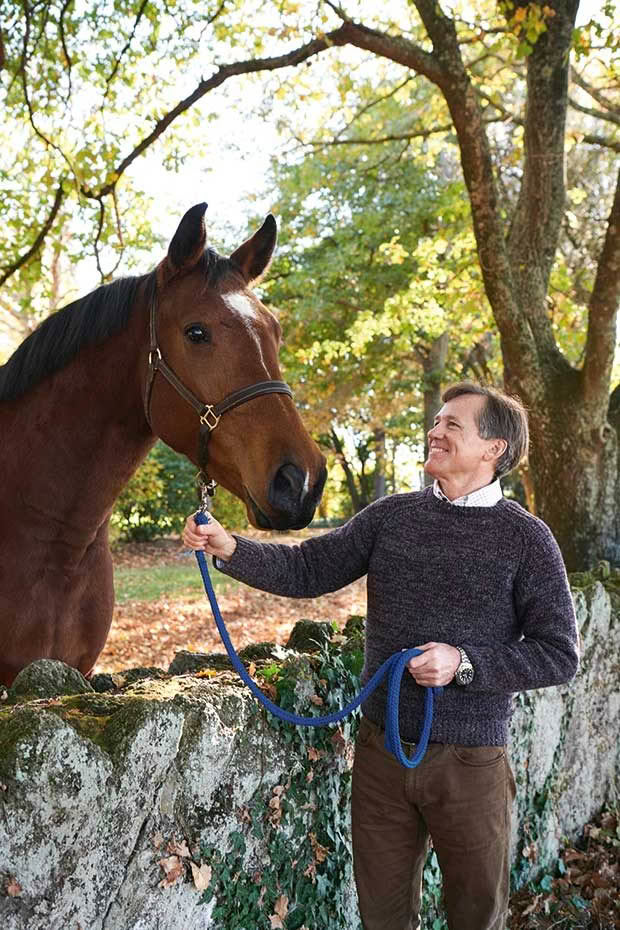
David with Fiesta NZPH. “I don’t get the opportunity to ride much these days but I enjoy being around the horses and it’s wonderful to have them at the iconic Okawa Stud,” he says.
FIRST IN SHOW
• New Zealand Performance Horses (NZPH) is one of the largest sport horse-breeding enterprises in Australasia.
• Sport horses are bred for trainability and willingness to work, hence their association with traditional equestrian events such as show jumping and dressage.
• NZPH horses are explicitly bred for show jumping and generally are sold before they are three years old.
• NZPH has bred more than 17 qualifiers for the FEI World Cup, the crème de la crème of show jumping, since inception.
• It imports frozen semen from top stallions in Europe through the Normandy-based operation GFE (Groupe France Elevage).
• The best fillies are kept and become broodmares.
• NZPH employs a full-time technician and two assistants and has clients mainly in New Zealand but also Europe, Japan, the United States and Mexico. nzph.co.nz
Love this story? Subscribe now!
 This article first appeared in NZ Life & Leisure Magazine.
This article first appeared in NZ Life & Leisure Magazine.
